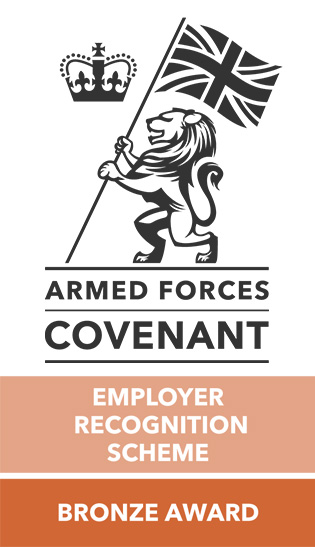Transition trauma? Turn here for help
According to Veteran’s Gateway, transition can feel like the biggest burst of ‘life admin’ you’ll ever experience, but starting to plan as soon as possible will smooth the way. Thankfully, the Veterans’ Gateway team is on hand to help you – and your family – with advice and support …

Time for you to adjust …
As much as you can try to mentally prepare for the fact you’ll no longer be in uniform, and will have the freedom to choose your ‘forever home’ and a new career, there is no doubt that making the transition from Services to civvy street comes with its own uncertainties and possibly a side order of apprehension. You wouldn’t be human if you didn’t feel nervous about what lies ahead in the next chapter of your life!
This period of resettlement can be very variable too – anything from a couple of months to sometimes even years, depending on your reasons for leaving. If you’ve been medically discharged or made redundant, the fact that it wasn’t your choice can really impact your transition. It’s a hard pill to swallow and while even those who ‘choose’ to leave can find that adjusting to life on ‘the outside’ takes time, when it’s a decision that has been made for you, such difficulties can be exacerbated further.
… but what about your family?
While you might long to wear ‘normal’ work clothes in an array of colours (anything but military green), and look forward to never having to stand in front of your Commanding Officer ever again, it’s important to try to understand the concerns and worries your family might be feeling. They may be experiencing sheer joy at the thought of being able to paint walls after years of the standard magnolia that’s adorned your quarters, or celebrating the realisation they will never again have to take down and rehang the infamous issued curtains, but what do they really need in terms of support when you finally drive off towards the bright new horizon of civilian life?
Veterans’ Gateway is here to help
Veterans’ Gateway was launched in 2017 following Lord Ashcroft’s Veteran’s Transition review. With more than 2,000 military charities available to the Armed Forces community at that time there was a clear need for a dedicated service to be the first point of contact for the veteran community. Veterans’ Gateway represents a pathway to a comprehensive array of support, from housing to mental health services, from financial to employment advice. In fact, it will clearly signpost veterans and their families to experts who can help them with whatever they need.
The service can be contacted via 24-hour helpline, email, online chat, SMS, via the Veterans’ gateway app (see box) or on social media. It’s even free to access from overseas so that any veteran in any corner of the world can get the help they need
THE VETERANS’ GATEWAY APP
The Veterans’ Gateway app helps veterans find support organisations in their local area using a smartphone or tablet. These organisations cover both the Armed Forces sector and wider charity and not-for-profit sectors.
Based on your location, you can access the support you need with finances, housing, employment, relationships, physical and mental health, and more.
The app’s user-friendly directory groups all NHS facilities across the country, and more than 2,000 charitable organisations. You can either use the map tool to look for organisations in your area, or search by name, postcode or topic of interest (e.g. ‘financial support’).
Download here
- App Store
Source: Veterans’ Gateway
To date, the areas that people have most needed support in have been finance, mental well-being and employment. A specialist team, which includes veterans from across all three Services, is on hand all day, every day of the year. They are there not only to assist with signposting queries, but can also help a veteran or family member in crisis.
Chris, one of Veterans’ Gateway’s helpline advisors, joined the Royal Air Force in 1985 and served almost 10 years before being medically discharged. He admits it took him a lot of time to be able to settle back into civilian life, saying ‘I have been in the same position as a lot of people who are calling us here at Veterans’ Gateway, so I can use my personal experiences to point them in the right direction for the best help.’
YOUR HELPING HAND THROUGH TRANSITION – AND BEYOND
Veterans’ Gateway is on hand to offer you help and advice in the following areas, for as long as you need …
Housing (including finding a home, homelessness, care homes and supported housing)
- Employment (including education and training, job seeking and self-employment)
- Finances (including benefits, money and debt advice, pensions and compensation)
- Living independently (including benefit applications, care, mobility, home aids and adaptations)
- Mental well-being (including accessing support, bereavement)
- Physical health (including healthcare services and rehabilitation)
- Family and communities (including support groups, family matters)
Do your homework
When you’re planning your move to the civilian workplace and your new home and family life (and, understandably, Veterans’ Gateway places great emphasis on the importance of planning), the organisation’s website forms a very useful basis for some initial research into what you’ll need to do and how to go about it. On the site you’ll find various user guides on how to register for local healthcare and education, and advice on how to plan where to live and calculate how much it will cost you. There are online tick lists available so that your transition isn’t one big daunting to-do list that’s buried underneath your diary brimming with leaving drinks and mess dining-out nights. Instead, you’ll be able to take a new approach, talk to your family, involve them in the process, and help them with their own thoughts and concerns.
It’s important to try to understand the concerns and worries your family might be feeling
Planning for peace of mind
While you were serving, and maybe away on deployment, knowing your family was settled and doing OK at home will have allowed you to do the best possible job, and it’s no different when it comes to resettlement. Approaching resettlement like a new posting, involving your family and ensuring they are factored in to plans will help in the long run. School places, healthcare and the local community will all need to be considered so that everyone’s needs are met. It’s easy to take certain elements of Service life for granted, with schools, nurseries, medical centres and even community groups all just moments away, but on the other side of the wire it’s these amenities that you need around you, and choosing them can be challenging. If you team this with a new job that involves an unfamiliar commute, suddenly everything that was previously on your doorstep becomes a little more difficult to access.
FAMILY MATTERS
Every family is unique and, during transition, each family will have different priorities. Research shows that involving family members in transition can only be a good thing. Most families will need to think about the following questions:
- Where will we live?
- Where will our children go to school?
- Where will we work?
- How do I register with a new doctor or dentist?
- How will I make friends and build a support network outside of the Armed Forces community?
- What support will the Service person get when they leave?
Source: Veterans’ Gateway
Experts on hand to help
Veterans’ Gateway has a wealth of experts who are available on the phone (or whichever means of contact you prefer) to talk about how to register for school places, medical and dental practices, and how to access support through local authorities. If you have any concerns over specialist support or services, the team at Veterans’ Gateway can assist you. They also work with a range of partner charities and organisations that veterans and their families can be referred to, so that they get the range of support they might need.
Of course, the reality of your new start in civvy street will depend entirely on your individual circumstances, but a good question to ask yourself before you leave is, ‘Do you have an idea of what your life might look like, so that you can prepare yourself?’ Veterans’ Gateway has a number of tools that can help you with this, from budget calculators to information on the realities of renting or applying for a mortgage, so that you can make the best decisions possible.
Veterans’ Gateway will signpost a veteran and their family to experts who can help with whatever they need
Expect the unexpected
Finding a gym that doesn’t cost a large amount after a career of unlimited free gym membership may be one of the items on your priority list, but be prepared for other, perhaps more unexpected challenges that lie ahead, like finding new social networks. One of the biggest changes will be not being surrounded by ‘instant military friends’ who are in the room next to you, in the bar and always on hand. Instead you’ll be finding your feet in a new community. Veterans’ Gateway can help you identify breakfast clubs and other community focal points so you feel you have a go-to place where you can have banter with comrades, and potentially even find you a new gym buddy too!
Turning transition into opportunity
Transition can feel like the biggest burst of ‘life admin’ you’ll ever experience, but planning early enough and breaking it down into steps will make it easier. Then you can begin to enjoy the opportunities that life can bring after a career in the military; you will definitely have some extraordinary dits to tell in the bar from your time serving – the only problem is, unfortunately, the drinks will never be as cheap as they were in the mess.
HOW TO CONTACT VETERANS’ GATEWAY
Veterans’ Gateway is available to you whether you’re on day one of your new life on civvy street or if, weeks, months or even years down the line, you are in need of help and advice. Whether there is a simple question you need answering, or you have a situation that may need specialist support, contact Veterans’ Gateway and its experts will do the rest.
Get in touch …
Call 0808 802 1212
Visit www.veteransgateway.org.uk
Text 81212
Click here to send an email
… and here to launch an online chat (chat support is available 27/7)
USEFUL WEBSITES
- MoD Service Leaver’s Guide
- Career Transition Partnership
- CTP Future Horizons
- Personnel Recovery Units
- Army transition information
- Royal Navy veterans information
- Naval Families Federation
- Army Families Federation
- RAF Families Federation
- Veterans’ Welfare Service
- Veterans UK











